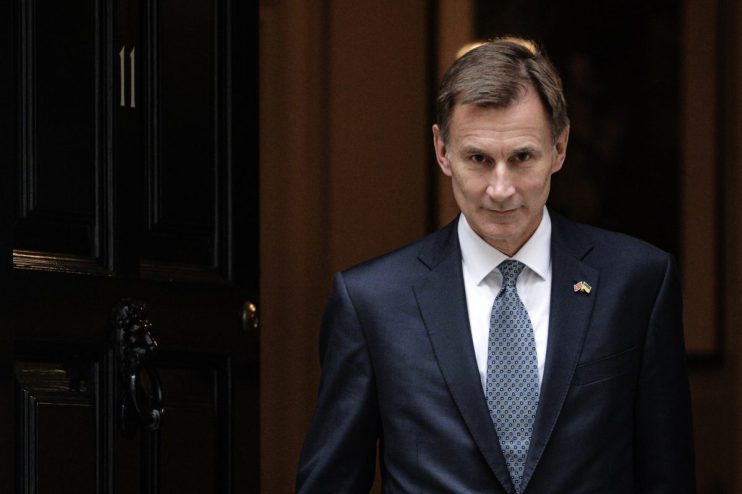Treasury changes will hit angel and small investors ‘hard’ – with start-ups fearing the worst

Hundreds of start-up and tech investors launched a pressure campaign on the Chancellor Jeremy Hunt over plans to redefine a key segment of the market, which they claim could potentially block millions of pounds of investment.
In a letter coordinated by lobby group the Start-Up Coalition, over 500 firms and investors urged the Chancellor to back down on plans to redefine “high net worth individuals” which they warned could block investors from backing tech innovations and start-ups.
The row’s origins stretch back to 2001 when government passed a law to certify ‘sophisticated investors’ and high net worth individuals and allow them to access certain riskier investment products.
However, Hunt and the Treasury are set to hike the legal threshold needed to qualify as a high net worth individual from the end of January.
The move has triggered a backlash from start-ups and so-called angel investors, who warned yesterday the “startup ecosystem will be hit hard”.
“The changes would mark a huge increase in wealth requirements needed to invest in startups, damaging the ecosystem at such a delicate time,” Start-Up Coalition director Dom Hallas, whose body represents some of the most exciting and fast-growing businesses in tech and a host of other areas, warned in the letter.
“They are anathema to the trailblazing startup ecosystem that has been built today,” he added.
Under the new thresholds set out by the Treasury, high net worth individuals will need to earn £170,000 a year and have net assets of £430,000 to qualify, up from £100,000 and £250,000 respectively.
“The income threshold for high-net worth individuals was last set more than twenty years ago; we have updated it in line with inflation from £100,000 to £170,000 per annum, to ensure exemptions from the financial promotions regime apply only to those who are ‘high-net-worth’ or ‘sophisticated’,” the Treasury said in a statement.
Investors are also able to qualify as a ‘sophisticated investor’ if they have been a member of a network of business angels for more than six months, the Treasury added.
However, over 500 signatories of the letter warned Hunt that while the changes were well intended when the sector was “flush with cash” in 2021, the funding has since dried up.
The increase in the thresholds will “kick the ecosystem while it is down”, they warned.
The fears have been fuelled by a slump in start-up investment over the past year, as sharp interest rate hikes and inflation choke off the flow of cash to fast-growing firms in tech and beyond. UK venture capital funding cratered by almost half last year to £16.1bn, down from £28.9bn the year prior, according to data from Pitchbook, compiled for City A.M.